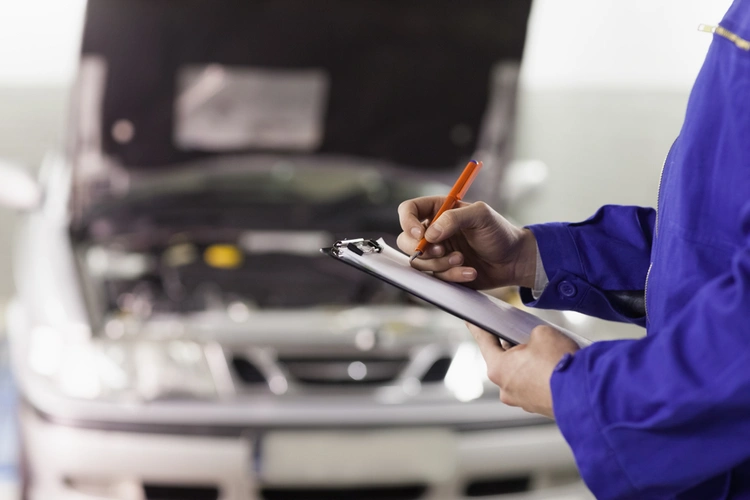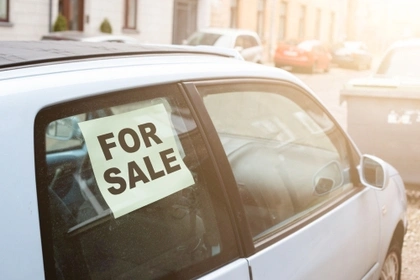What is an insurance write off?
An insurance write-off is where the car is so badly damaged that it can’t be repaired - or where the cost of repairing it would be more than the value of the car itself. This applies whether you have car finance or own the vehicle outright. Insurance companies can write off a vehicle even if there is little damage, if it fits either of these criteria.
What are the four categories of insurance write off?
There are four categories an insurance provider will place your car in if they write it off:
- category A is where the vehicle is classed as not suitable for repair. In this instance your car must be scrapped without any parts being removed
- category B is where the vehicle is still considered not suitable to be repaired and is classed as waste - but you can sell or recycle usable parts
- category S (previously known as category C) is where the vehicle has suffered damage to the chassis or structural frame and the owner has decided not to repair it. It may be more cost-effective to get a new car under these circumstances
- category N (previously known as category D) is where the damage to the vehicle is not relating to the structural frame or chassis, but the owner isn’t going to repair it. In these circumstances there are usually safety issues such as damage to suspension parts or steering
What to do if your financed car is a write off
If your car is written off while your finance plan is still running, you’ll need to contact your finance provider as soon as possible – as well as your insurance provider and the DVLA.
Depending on which category your car falls into you, you may be able to:
- clear the outstanding balance on your finance agreement
- buy the car back and repair it
- or buy a new car with the insurance money
Follow these three steps to make sure you provide all the correct information to the right people.
1. Contact your finance provider
You should tell you finance provider as a first port of call. This can be done either verbally or in writing. Just make sure you do it as soon as possible – the sooner you contact them, the sooner they’ll be able to tell you what your options are. If they ask whether you’ve spoken to your insurance provider and/or the DVLA, you can tell them those are next on your list.
2. Speak to your insurance provider
It’s important that you update your insurance provider as soon as you’ve spoken to your finance provider. Again, this can be done in writing or over the phone. They’ll be able to tell you what the next steps are with regards to your insurance plan.
3. Update the DVLA
The DVLA have records of which cars are registered in your name, so you should also contact them to let them know your car has been written off. They may then de-register your car.
What are my options if my financed car is a write off?
If your financed car is written off you will have different options depending on:
- the state of the car
- the terms of your finance agreement
- how much of your finance you have paid ofd
You may be able to either clear the outstanding balance, buy the car back and repair it, or use the insurance money to buy a new car and keep paying your finance.
1. Clear the outstanding balance
The insurer will pay you the amount that the car was worth at the time it was written off. You can use this towards the outstanding balance on your finance agreement. If it doesn’t cover the full amount remaining, you may be able to make a partial early payment and reduce the amount of time you have left on the agreement.
Many finance companies will let you pay off the remaining balance early in accordance with the Consumer Credit Act. If you’re unsure whether your car finance falls into this category, contact your lender. If it doesn’t fall into this category, it’s still worth contacting your provider in case the allow you to settle early anyway (but there’s no guarantee they’ll agree to this).
2. Buy the car back and repair it
Another option is to buy the car back off the insurance provider and repair it. If you want to peruse this option, you should let your insurance provider know as soon as possible. If you wait until a settlement figure has been decided, they might have already agreed a deal with a salvage company and be reluctant to break it.
If they agree to you buying the car back, you should organise regular touch points with them to keep yourself up to date on the process. This will also help you to negotiate the best price for the car.
You should consider asking a professional mechanic to assess your car before deciding to buy it back and repair it. That way, you make the best decision for your circumstances. There are also some other factors you should think about:
- category S vehicles need to be re-registered with the DVLA and pass a full MOT before being added to an insurance policy
- category N vehicles do not need to be re-registered with the DVLA, but they do need to pass a full MOT before being added to an insurance policy
- category A and B vehicles can’t be repaired and made roadworthy again
Your insurance policy will be cancelled when your car gets written off, so you’ll need to take out a new policy with your new or repaired car. This can be more expensive for a car that’s previously been written off - and the car will have significantly decreased in value.
3. Use insurance to buy a new car and keep paying your finance
The third option is for you to use your insurance money to buy a new car and keep paying your finance for the written-off car. There shouldn’t be anything within your car finance agreement that prohibits this, but if you’re unsure, you can always check with your car finance provider.
Just remember to consider all options carefully before choosing in order to make the best financial decision for you.
What is gap insurance?
Gap insurance (otherwise known as guaranteed asset protection insurance), is something you can take out to cover the gap between the remaining balance on your car finance and the pay out from your insurance company. It protects you from being in negative equity if your car gets written off.
Negative equity is when you owe more money on your finance agreement than your car is worth – meaning you owe the difference.
Should I get gap insurance?
If you’re wondering if you should get gap insurance, it might be right for you if any of the following applies:
- you’re on a car finance deal and want to be able to pay off the balance if your car is written off, and you’re worried your insurance pay out wouldn’t be enough
- your car is the type that loses value quickly
- you wouldn’t be able to afford to replace your car if it was written off
Gap insurance might not be right for you if:
- you’re already covered for the difference between the balance on your car finance agreement and the pay out by your insurance company
- your car is less than a year old and it was brand-new when you bought it. In that case, it’s likely to still be close to its original value
- you can afford to pay off the balance on your car finance plan and/or replace the car
Get Car Finance up to £100,000
- Check your eligibility without impacting your credit score
- No deposit needed
- Rates from 8.9%* APR
'Representative Example: Borrow £12,000 over 5 years with a £0 deposit. Representative 20.5% APR fixed rate. Monthly payment: £309.93. Option to purchase fee £10 payable. Total cost of credit: £6,605.80. Total amount repayable: £18,605.80.
We are a credit broker, not a lender. We partner with CarFinance 247 Limited, a credit broker (not a lender) who works with a wide panel of lenders.
Disclaimer: We make every effort to ensure content is correct when published. Information on this website doesn't constitute financial advice, and we aren't responsible for the content of any external sites.






